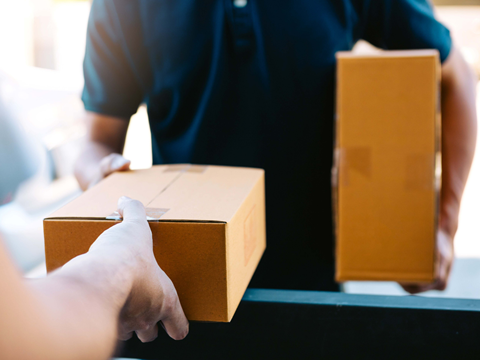
Antalis Packaging states it has tested and re-engineered a customer’s shipping cartons to achieve a 33% reduction in packaging materials, also resulting in a CO2 emissions reduction of 21 tonnes per year.
Apparently, the client’s original cartons were made from a double-wall B/S flute which, while strong, consumed 61 tonnes of board annually. Packaging technologists at Antalis’ Smart Packaging Centre (SPC) aimed to minimize the use of corrugated board in the shipping cartons – one small and one large – without compromising performance, conducting tests to establish the performance capabilities and make-up of the cartons.
Using the test results, Antalis says its packaging technologists created theoretical parameters for replacement boxes made from single-wall C-flute board, believed to achieve at least the same results using less cardboard per box, which was confirmed after further testing. Once rolled out, the new cartons also reduced the number of pallet movements required through an increase in the number of cartons per pallet, from 140 to 180.
Head of Sustainability, Innovation and Design at Antalis, John Garner, commented: “We knew in theory that a single-walled carton in a heavier flute should match the performance, but we couldn’t be sure until we’d carried out the tests. The results show how clever cardboard engineering can make significant improvements in sustainability. Plus, we did it quickly: the whole process from taking the brief to delivering the first batch of new cartons took less than two months.”
Last year, Antalis expanded its e-commerce portfolio to include recyclable, biodegradable paper strapping and paper-based documents enclosed wallets, hoping to replace unnecessary single-use plastics with ‘sustainability-minded solutions’. The paper strapping is said to offer a breaking strain of 70kg and integrate seamlessly into traditional strapping machines.
In similar news, Thermo Fisher Scientific introduced an ambient shipping solution for 125,000 of its Invitrogen antibodies. The new packaging reportedly represents a 90% reduction in shipment mass, improves freight density and reduces carbon emissions.
If you liked this story, you might also enjoy:
The ultimate guide to the Packaging and Packaging Waste Regulation in 2024
How are the top brands progressing on packaging sustainability?
Sustainable Innovation Report 2024: Current trends and future priorities
Everything you need to know about global plastic sustainability regulation














No comments yet